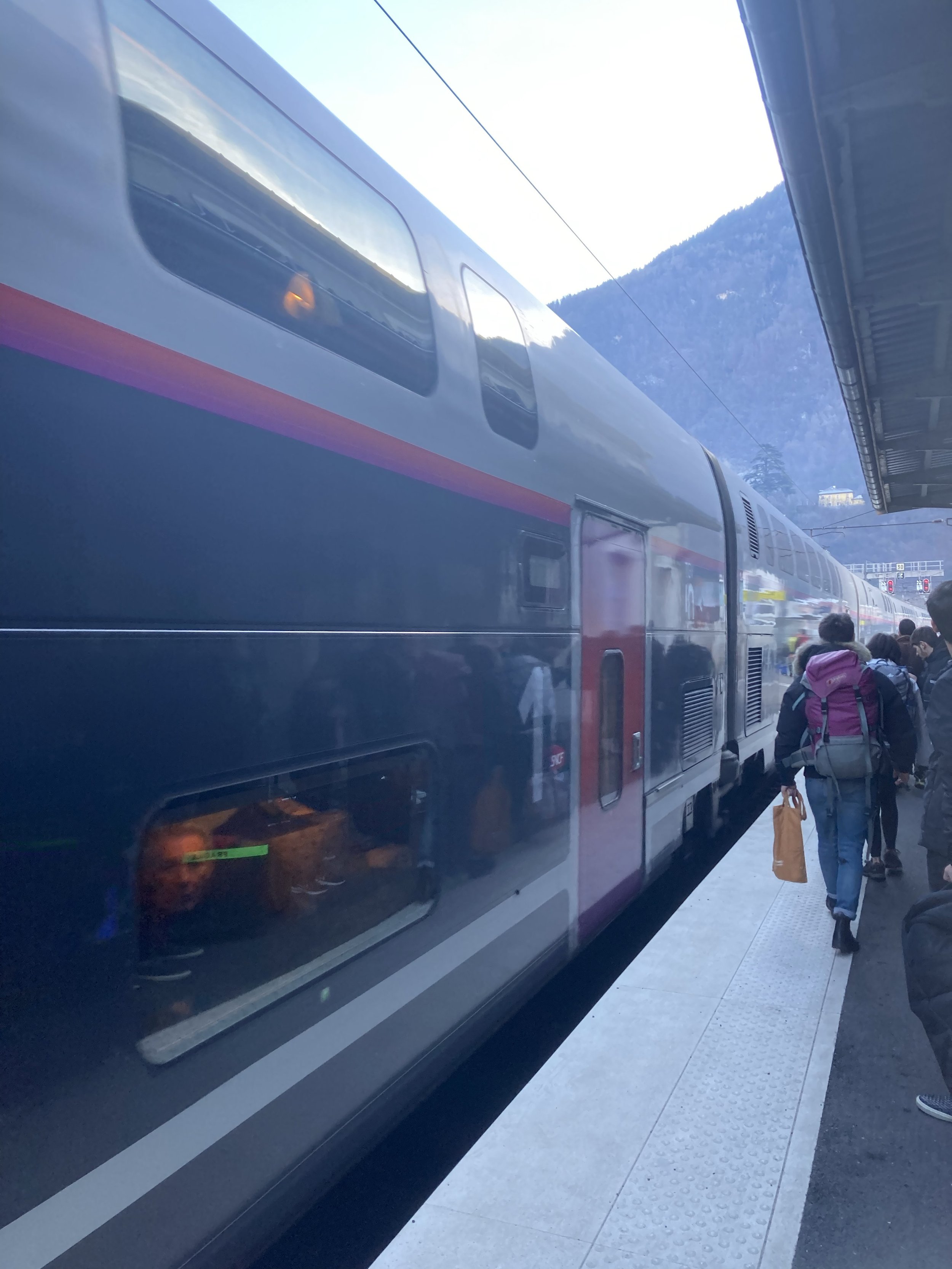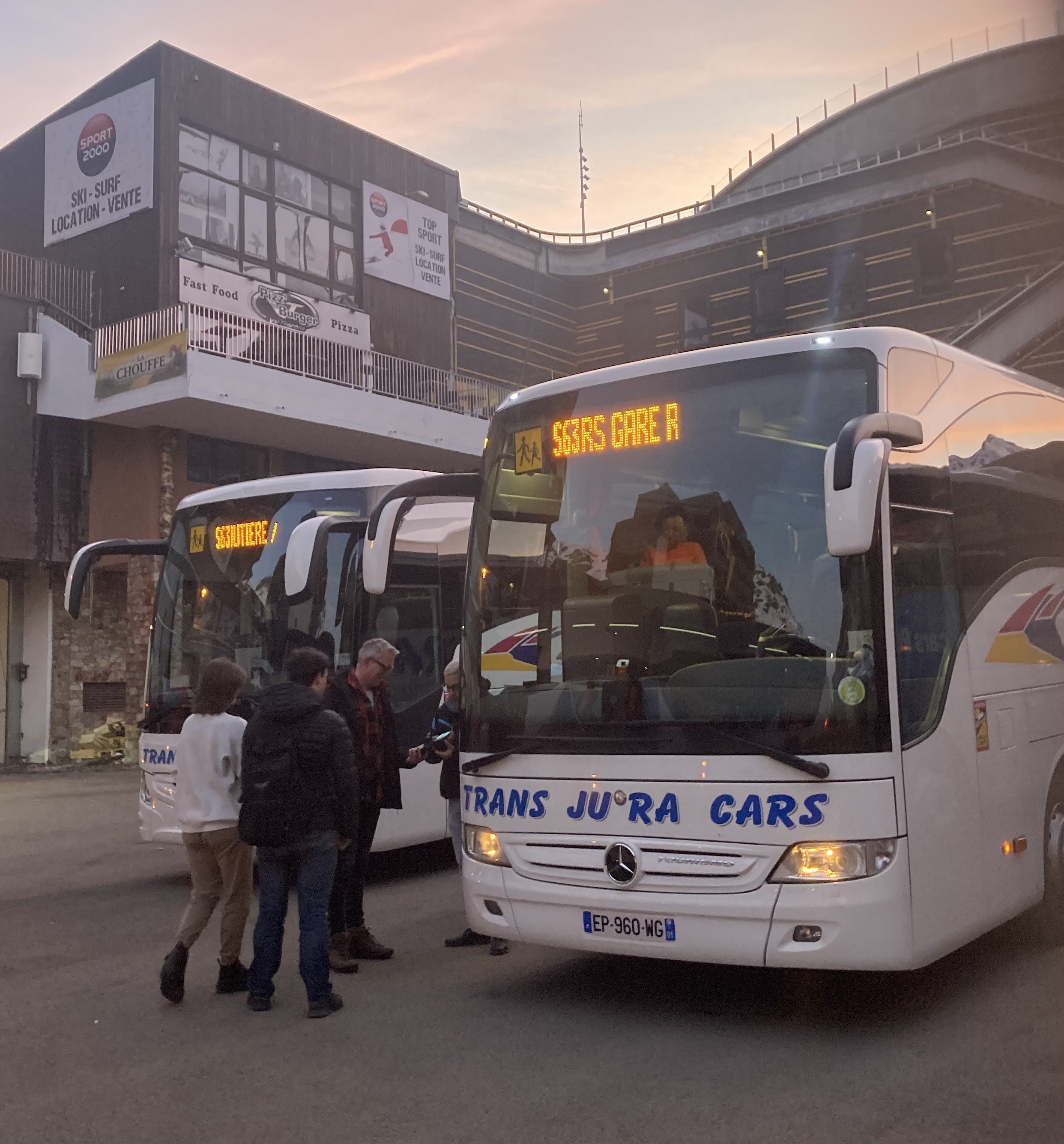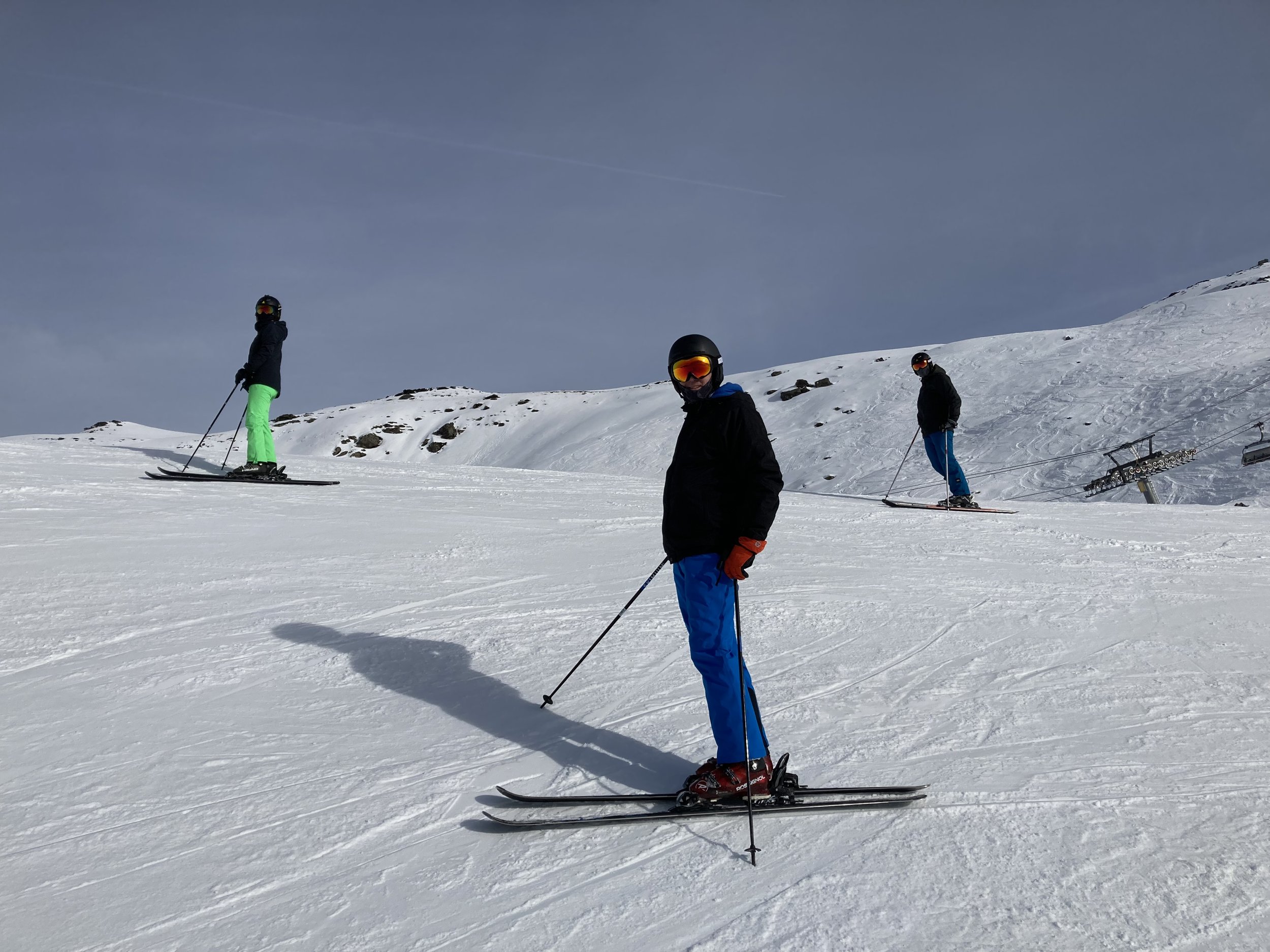Climate Perks: Maximum fun, minimum impact. (Guest post)
By Louise Daniels, Thrive Renewables.
There was an elephant on the ski slopes over the New Year and it wasn’t the usual teenager on skis dressed in a crazy onesie. The weather, almost certainly exacerbated by climate change, was unseasonably warm leading to rain on lower slopes, essentially washing away the snow.
People chatting in lifts and bars across the mountains were, of course, sad. It made me think yet again about my personal choices and the consequences of the climate emergency we now see all around us. Systemic change is undoubtably the answer. But while we wait for governments to even implement what they promised in Paris and Glasgow, there are things we can all do, especially those of us who are lucky enough to be able to afford to go on nice holidays.
Our family have been travelling to ski in France by train for the last four or five years. This year I was able to get extra time off for sustainable travel as my employer, Thrive Renewables, is signed up for Climate Perks.
How long does it take?
Eurostar direct from London to Moutiers, one of several stations at the foot of the alps less than an hour from our destination of Val Thorens, takes just over eight hours. By the time you add in getting to the airport two hours early and transfers from Geneva, for example, the time comparison with flying isn’t too bad. Coach transfers from European airports to alpine resorts can be badly affected by traffic and weather and take several hours.
And what a contrast the rail experience is.
What’s it like?
You hop onboard in central London, hop off in Paris two and a half hours later. We often manage to fit in a cheeky lunch and quick wander round before getting the Metro down to the Gare de Lyon for the four and a half hour journey on top of a double decker TGV, taking us right into the heart of the alps.
As we board this time it’s easy to tell we’re on the right train as the guy opposite is piste- ready in orange salopettes. The relaxing journey provides valuable time to catch up. As I write my daughter is customising a cap with embroidery, my son is finishing a uni assignment and husband is enjoying a film.
Every now and again we lift our heads to enjoy France. The sights of Paris are soon replaced with a bucolic blanket of fields interspersed with pointy church spires and cosy villages nestled in peaceful valleys. As we journey south, vines march up the hillsides in serried ranks and mini chateaux perch dangerously on impressive rock formations rising towards the mountains. Tolkienesque lakes and villages snake along the bottom of valleys and huts and chalets straight out of Heidi teeter on the terraced pastures above.
We arrive well rested and take the public bus straight up to our little apartment. As an energy geek, I’m glad to see solar panels on the external walls (they don’t work on roofs here as they are blanketed in snow for much of the winter and spring in normal conditions). The resorts seem to have their act together with renewables; Val Thorens claims to power its lifts with locally produced hydro power. As always, there is much more to be done. The use of water and energy hungry snow canons is becoming more widespread as natural snow cover recedes.
What’s the cost?
It really depends when you book and what demand is like. During peak times such as school holidays, the train can be a cheaper option as budget airlines maximise prices based on demand. Off-peak air fares are so low it is difficult for the train to compete financially, which of course brings us right back where we started to the subject of systemic change.



